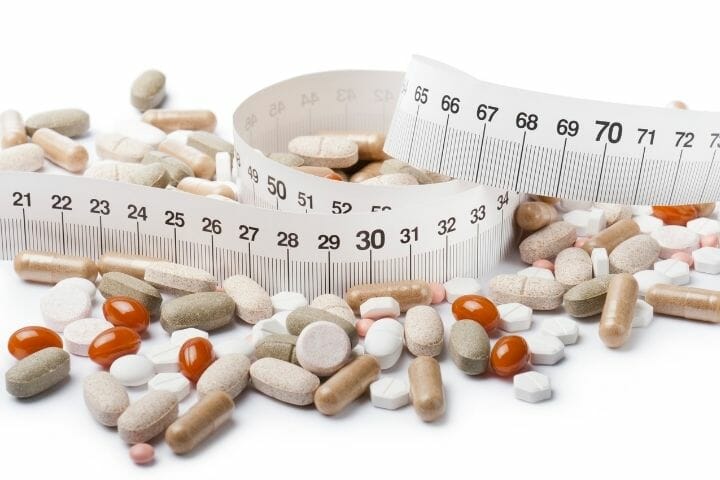There is a lot of confusion about health supplements, their need, and their effectiveness. For example, do you need vitamin supplements with age? We answer this question in the article below.
Contents
As people age, especially when they reach their late 50’s start seeing a decline in their physical, mental, and overall health. This is a common problem that many aged people face all over the world. Do you wonder why?
Any vitamin deficiency or lack of minerals in the body can affect your overall health, which leads to various health problems. So to prevent such problems and live a healthy life, it is essential to take vitamin supplements as you age.

However, vitamin supplements and minerals are best for every age but essential for older people. In fact, many adults and children take more than one vitamin supplement in a day. But before you head to supplements, make sure you know the role of vitamins in your body and the important vitamins and minerals required to promote overall health.
In this guide, you will learn:
- What is a dietary supplement?
- Nutrients your body needs as you age
- Are dietary supplements safe to use?
What is a Dietary Supplement?
Dietary supplements have gained popularity as they provide all essential nutrients to the body. They either come in the form of pills, capsules, gummies, or powder.
Most dietary supplements contain ingredients extracted from plant sources that are beneficial for health. They are made up of herbal extracts, which do not cause any side effects to the human body.
In addition to vitamins, minerals are also present in dietary supplements, along with amino acids, herbs, enzymes, and other important ingredients for health.
Dietary supplements do not contain harmful chemicals, and no prescription is required to buy any vitamin supplement.
Should You Take a Vitamin Supplement?
Eating healthy food items is the best way to get all the essential nutrients. However, it becomes tougher for the body to absorb all nutrients when the body ages.
That is the case where vitamin supplements come into the picture to fill out missing nutrients in the body.
If you are willing to use Vitamin supplements in your daily routine:
- Talk to your doctor before you start taking any vitamin supplement.
- Always remember, “natural” does not mean it does not have any side effects. Check the ingredients present in Vitamin supplements and know if you are not allergic to anyone.
- Follow the vitamin supplement with a healthy diet.

Nutrients Your Body Needs As You Age: Vitamins
# Vitamin B12
Vitamin B12 is another essential vitamin for the body; it is important for older adults and younger ones too. Vitamin B12 helps make red blood cells and nerves healthy. Usually, when people age, they find it hard to absorb Vitamin B12 from food sources, so it is advisable to intake vitamin B12 supplements.
People who are vegan or vegetarian are prone to deficiency of Vitamin B12; the perfect sources of Vitamin B12 are red meat, poultry, and fish. Taking vitamin supplements is particularly helpful for them to deal with Vitamin B12 deficiency.
# Vitamin D
Vitamin D is an important nutrient. In America, many older adults have Vitamin D deficiency. It is important to intake Vitamin D supplements to prevent arthritis or osteoporosis. Vitamin D also supports the immune system and muscles.
Vitamin D deficiency is common as people age; it becomes tough for the body to convert the sun’s rays into vitamin D. Additionally, it is hard to get this vitamin from food sources, so doctors recommend using Vitamin D supplements.
# Vitamin B6
One needs more Vitamin B6 as one gets older. Your body requires more Vitamin B6 to fight germs and create more red blood cells. This vitamin helps in boosting energy and the immune system.
As per many studies, there is a direct link between Vitamin B6 with better memory. So for seniors, it is never a bad idea to take Vitamin B6 supplements every day to naturally boost their memory and blood levels.

# Vitamin B9
Vitamin B9 is important for pregnant women; they prefer taking a lab-tested form of Vitamin B9, which is known as folic acid, that helps in preventing any birth defects.
Folic acid is a known Vitamin B9 supplement meant for older to reduce the chances of strokes and a few cancer-related syndromes. Good sources of Vitamin B9 are leafy vegetables, nuts, and more.
# Multivitamins
US Preventive Services task force recommends seniors take multivitamins daily to ward off the chances of various health ailments. Taking multivitamins regularly will treat Vitamin D deficiency, lack of iron, or Vitamin B12.
Nutrients Your Body Needs As You Age: Minerals
# Calcium
Lack of Calcium in the body is the cause of poor joint health. As you age, the body starts losing minerals that it absorbs. When there is insufficient calcium in the body, it leads to more fractures and makes your bones break easily. Also, low calcium in women leads to early menopause.
With the help of dietary calcium supplements, one can allow their muscles, nerve cells, and blood vessels to work properly. Calcium supplements are recommended for women who are above 50 and men above.
Adults can also use such supplements if their bodies lack calcium. Although milk, cheese, and yogurt are perfect sources of calcium.
# Magnesium
Getting magnesium from food sources becomes tough for older people. Perfect sources of magnesium are nuts, seeds, and leafy vegetables; as people age, they consume less of such items. Plus, older people are likely to have health conditions and medicines, leading to a shortage of magnesium.
Magnesium is important to improve bone health and easy absorption of protein. In addition, a magnesium supplement is recommended by doctors to patients with Diabetes to manage blood sugar levels.

# Omega-3
Omega-3 fatty acids supplement has to be taken regularly because the body cannot make them. These fatty acids are important for the brain’s health, eyes, and overall physical performance.
There are many age-related diseases, like arthritis and Alzheimer’s. So to prevent such diseases, omega-3 fatty acids supplement works best.
The best sources of Omega-3 are fatty fish, canola oil, and walnuts. But in case one is not able to get an adequate amount of this nutrient from food sources, it is wise to take supplements.
# Zinc
Zinc is a nutrient that many people underestimate, but it is as important as any other vitamins and minerals. Zinc is beneficial to fight against viral infections and inflammation.
It boosts your sense of smell and taste. Oysters, beef, and crab are a perfect source of Zinc, and many people do not like eating such food items, so their bodies lack Zinc. In such a scenario, Zinc supplements have gained popularity; it is best for both older adults and younger ones.
# Selenium
Selenium is important to strengthen your muscles; it is directly linked to age-related diseases like dementia, thyroid, and cancer. Selenium supplements help keep you away from infections or damage to nerve cells.
But before you take any supplement to raise Selenium in the body, it is important to talk to a doctor as an overdose of Selenium can lead to hair loss and makes your nails brittle.
# Potassium
Potassium is responsible for better heart health; low potassium in the body can lead to heart strokes and high blood pressure and negatively impact kidneys. To prevent such health diseases, make sure your body has an adequate amount of potassium.
Many Americans face Potassium deficiency; either they can have spinach, milk, or yogurt to deal with it or have a regular supplement to boost overall health.

Recommended Doses of Vitamin and Mineral Supplements for Older Adults
As per dietary guidelines, here is a list of the correct doses of each vitamin and mineral supplement for men and women who are above 50.
# Vitamin B12
A vitamin supplement to raise Vitamin B12 in the body should not exceed 2.4 micrograms every day. In severe scenarios, it is important to consult a doctor before you overdose on this vitamin.
# Vitamin D
For people between 50 to 70, it is advisable to take 600 IU of Vitamin D, and you can increase the dosage if the age crosses 70. The maximum IU for Vitamin D has to be 4000 IU, not more than that. Excess of Vitamin D in the body can lead to side effects like tooth decay, poor vision, and many more.
# Vitamin B6
Healthcare providers recommend taking 1.5 g of Vitamin B6 supplement for women is right, and for men, it is 1.7g.
Are Dietary Supplements Safe for Consumption?
Although the FDA does not approve vitamin supplements, just like medicines for blood pressure, every manufacturer of vitamin supplements claims it is a natural supplement and does not have any side effects on the body.
In short, vitamin supplements are safe and legal. One should take them as you age without worries for health ailments.
Whether you take vitamin supplements or not, it is essential to follow a healthy lifestyle, eat healthy foods, and do regular exercise to support overall health.

Final Verdict
Vitamin supplements play a vital role for every individual, especially when they age. These supplements provide all essential vitamins and minerals to the body, which help prevent specific health issues like arthritis, high blood pressure, and many more.
The above list gives you excellent knowledge about which vitamin supplement you need for your health. We hope this article has provided you with all the information that you need on vitamin supplements; if not, you are welcome to drop us your suggestions in the comments box, and we will respond back quickly.
If you liked what you read, please share it on your social media channels and in your groups so that others can benefit from the knowledge as well.
